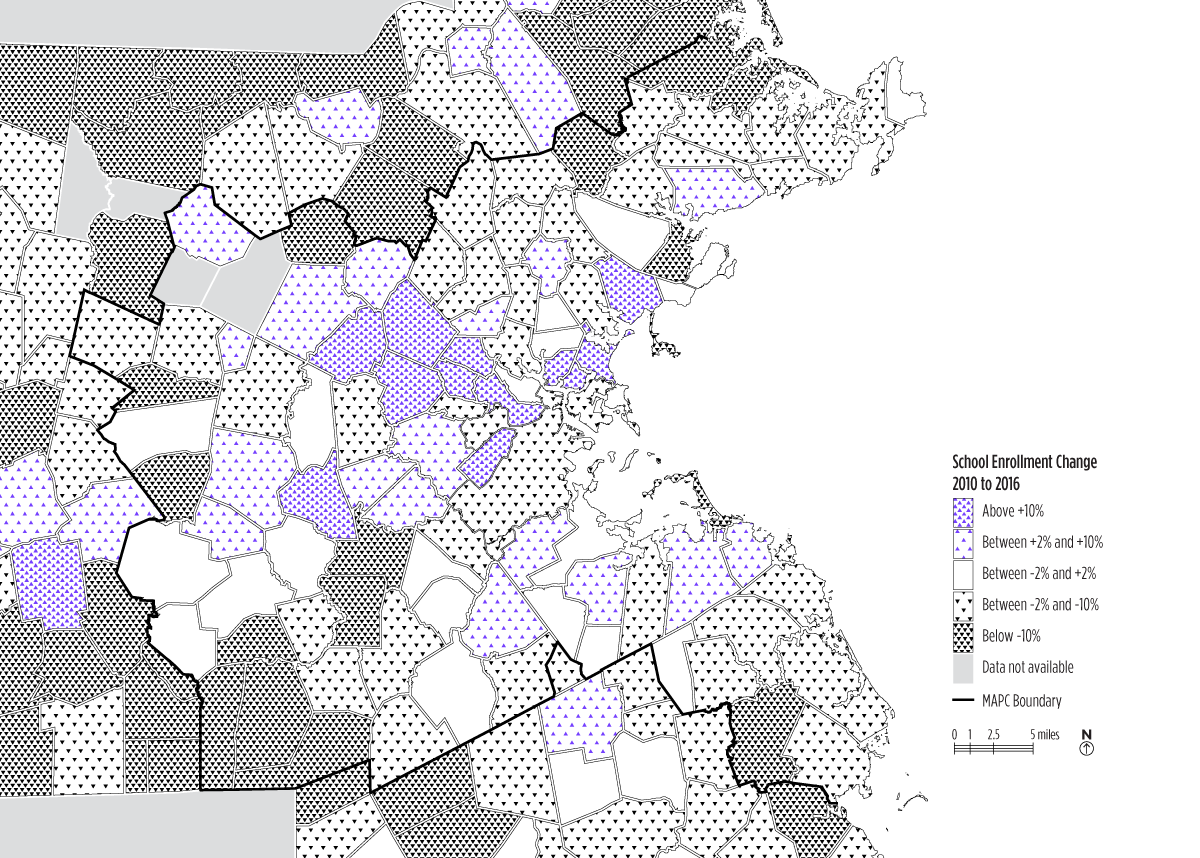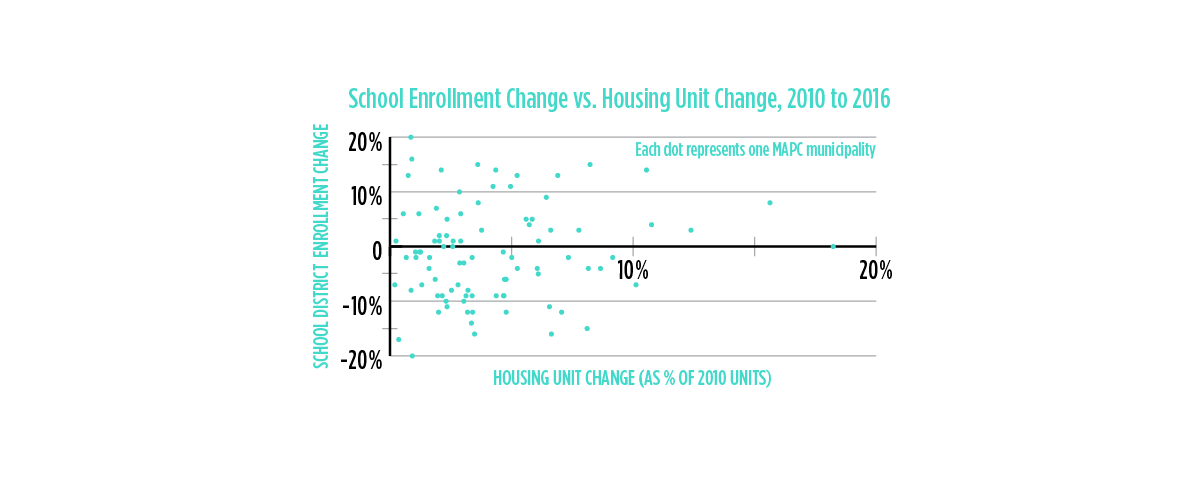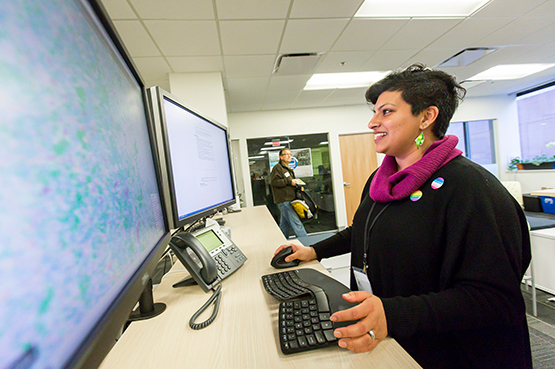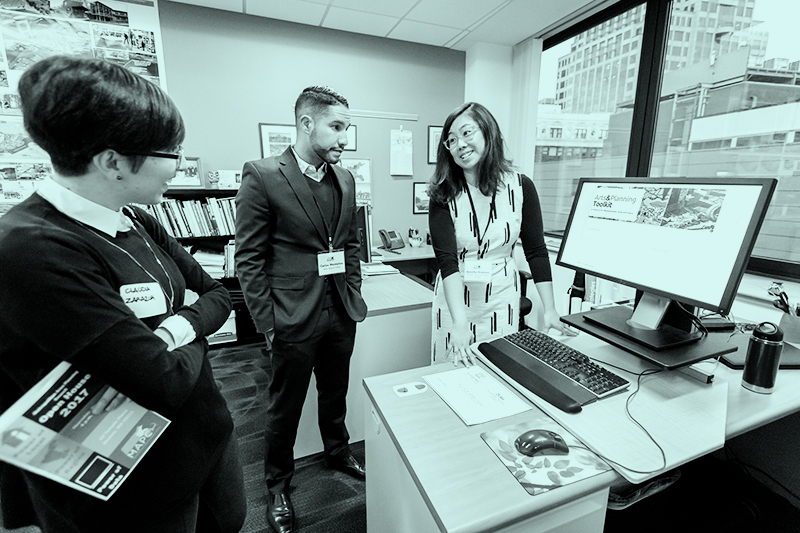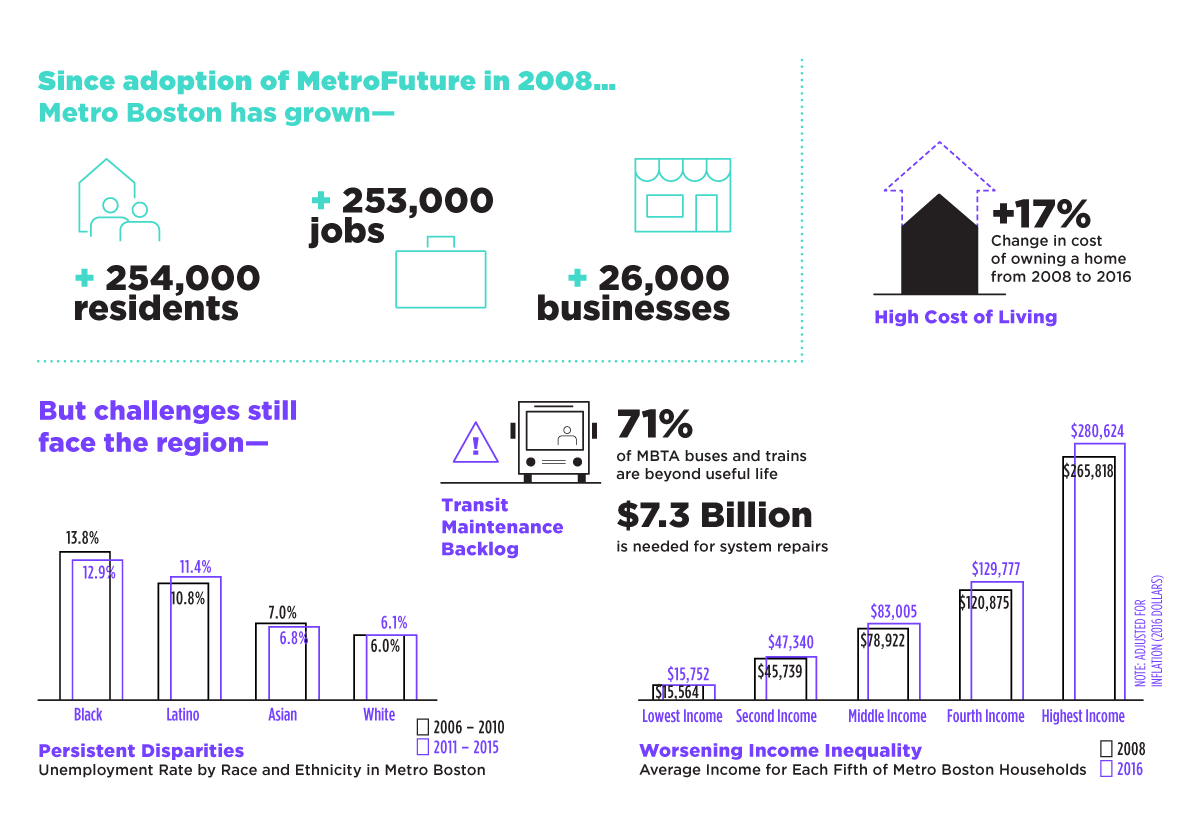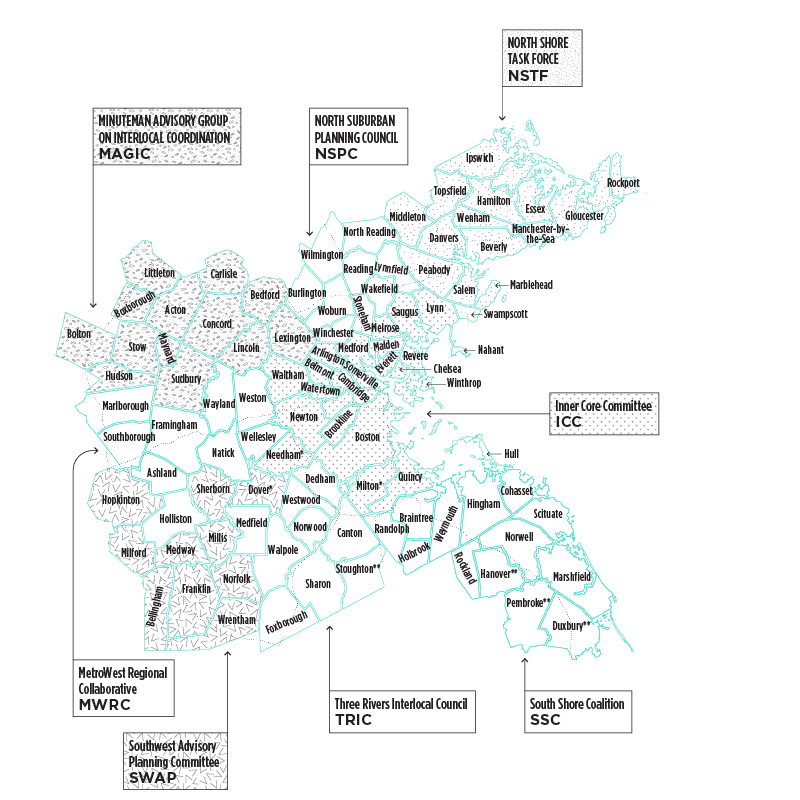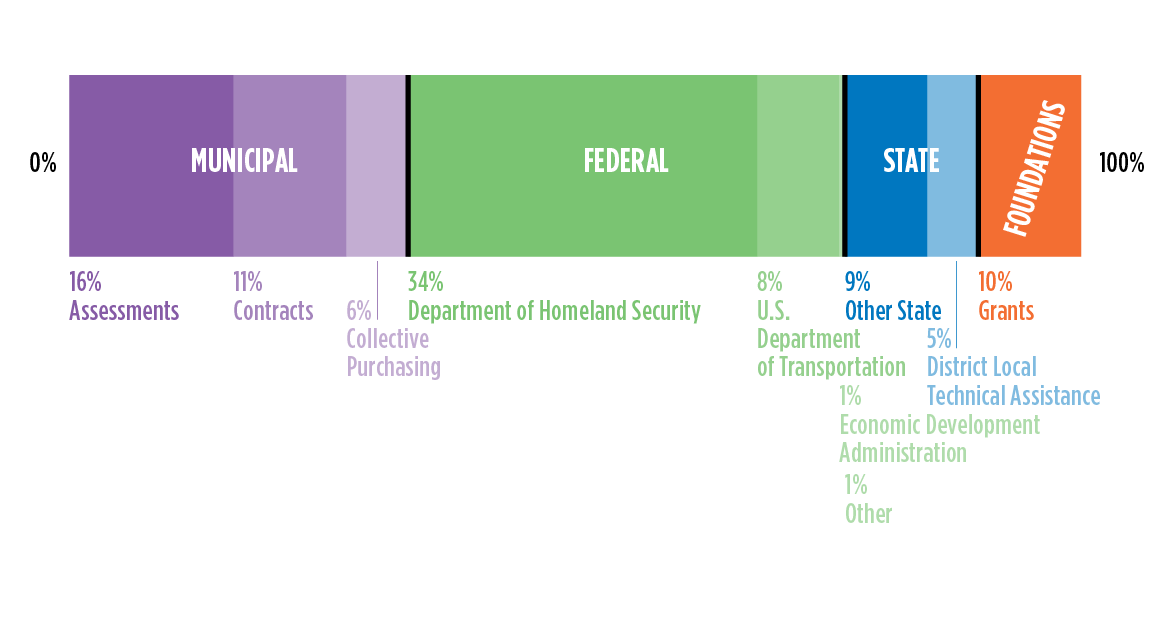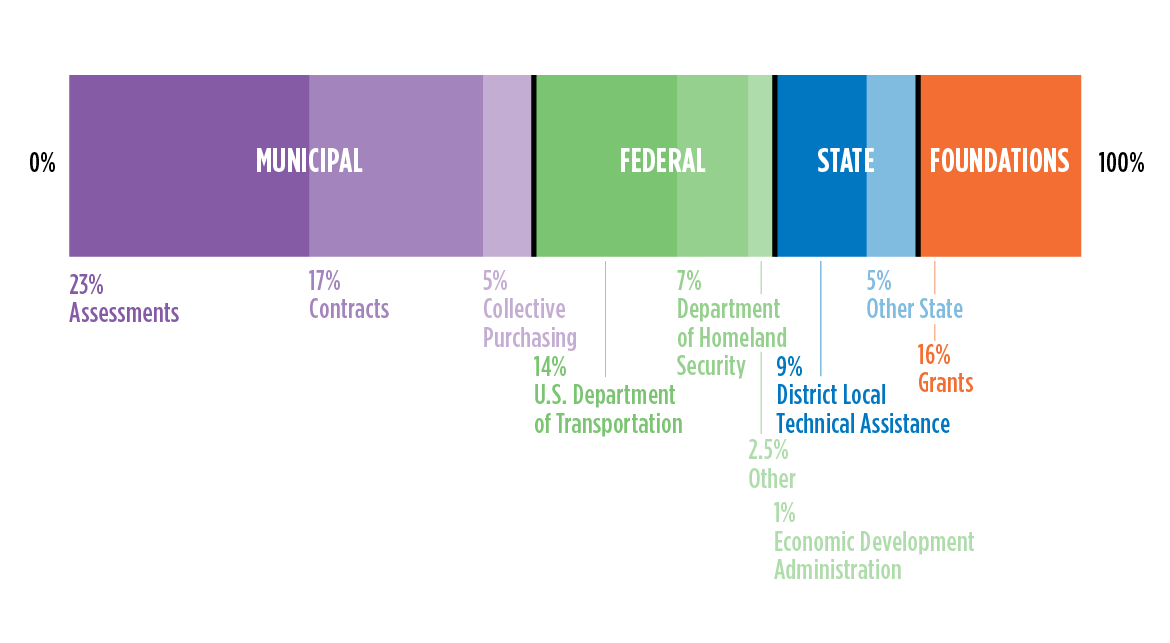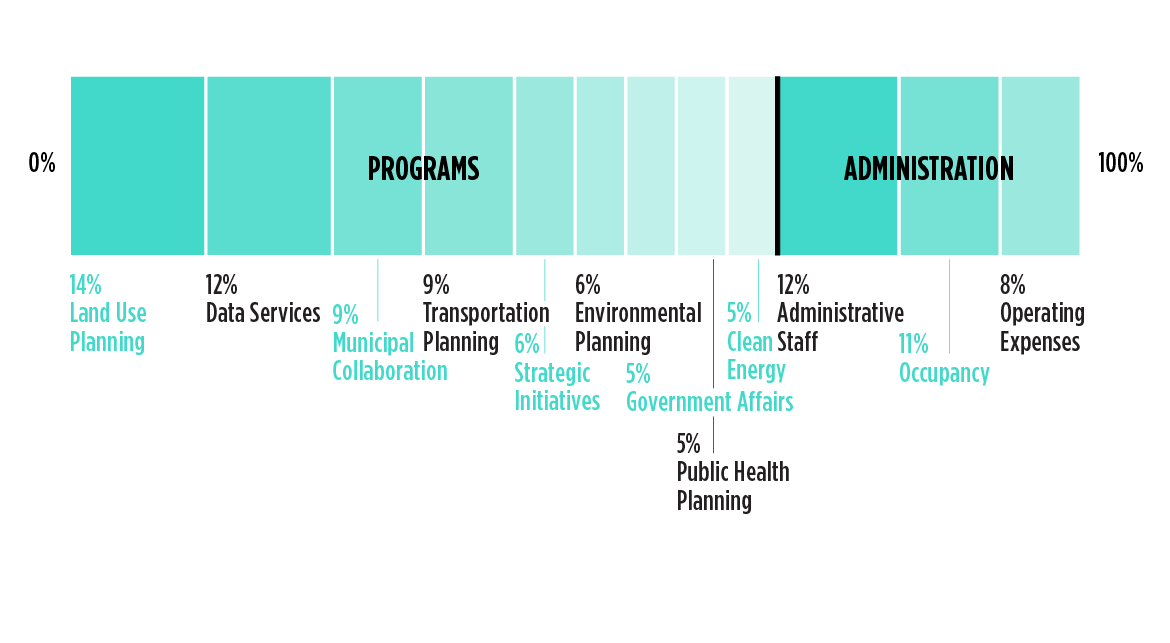TRANSPORTATION
In that vein, we have a new practice area looking at the implications of emerging vehicle technologies such as self-driving cars on the region. At our fall Council Meeting in Quincy, we offered a speaking panel on innovative mobility, including electric and autonomous vehicles, and attendees were even able to test-drive all-electric and hybrid vehicles from several manufacturers, as well as a selection of e-bikes. More than 50 people participated in the “ride and drive” event, and a post-event survey showed 88% who test drove a vehicle said they would consider purchasing electric. At least one member of our staff, as well as her mother, actually did so!
Working with Transportation for Massachusetts (T4MA), we are also working to develop principles around data-sharing for autonomous vehicles to ensure policy goals are met, privacy is protected, and the state’s transportation network can be safely improved. MAPC recognizes the transformative benefits that autonomous vehicles can have for our state’s economy, environment, and quality of life, as well as the challenges that could result from disruption to existing forms of mobility. Autonomous vehicles will affect not only our transportation system, but also our economy, safety, workforce, environment, land use, and energy use. Learn more about our work in this arena at mapc.org/transportation.
In 2017, we launched a special study of the ridership habits of Uber and Lyft customers, and at year end we are crunching that data to determine what effects these companies are having (if any) on transit use—with the goal of helping both the MBTA and area communities to plan better for the transit and transportation needs of local residents and commuters. Look for more information on that research soon at mapc.org.
Parking planning remains an issue of critical importance to our communities. In December of 2017, Boston and the MBTA piloted an exclusive bus lane on Washington Street between Roslindale Square and Forest Hills, building on an earlier pilot project that utilized dedicated bus lanes on Broadway in Everett to alleviate traffic and speed up bus times. Both projects used an MAPC parking analysis to convert car spaces into a devoted bus lane. The Everett project was so popular with commuters across all modes that the model became permanent! At year end, Boston and the MBTA are considering starting a second, longer pilot in Roslindale with ongoing support from MAPC, to determine whether it’s feasible to make this dedicated bus lane a permanent change to ease congestion and commute times along the Washington Street corridor.
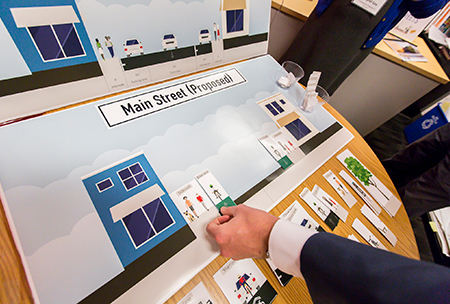
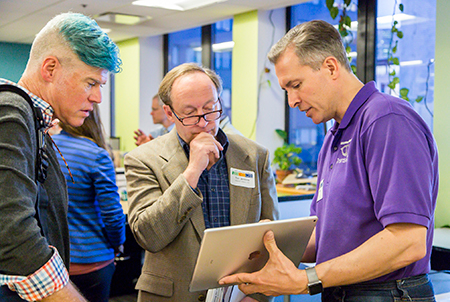
This year, MAPC has also begun working with several communities near Boston to explore no-cost, dockless bike share services. Several cities in our Inner Core, including Chelsea, Malden and Revere, underwent pilot programs to try these dock-free bike share systems in the fall of 2017; come spring of 2018, a regional program procured by MAPC will be rolling out across Greater Boston, giving more people in more communities access to low-cost bicycling opportunities. Dockless bike share systems offer bicycles with self-locking mechanisms that unlock with a mobile app. Rather than relying on docking stations, these bikes can be parked on the sidewalk, at bike racks, or in almost any publicly-accessible place, where the next user can pick it up, typically paying about one dollar per ride. MAPC, through a regional RFP being offered at the end of 2017, will help to create a boundary-less, regional system with multiple bike share companies that local governments can join at low or no cost, launching just in time for warmer weather.
In partnership with DHCD and Massachusetts APA, MAPC has offered a series of workshops on parking benefit districts, or PBDs, this year. A PBD is a specific geography in which parking revenue is raised then invested back into that same district, for transportation improvements. We are formulating case studies and best practices now with the goal of helping more communities adopt these districts in the years ahead.
